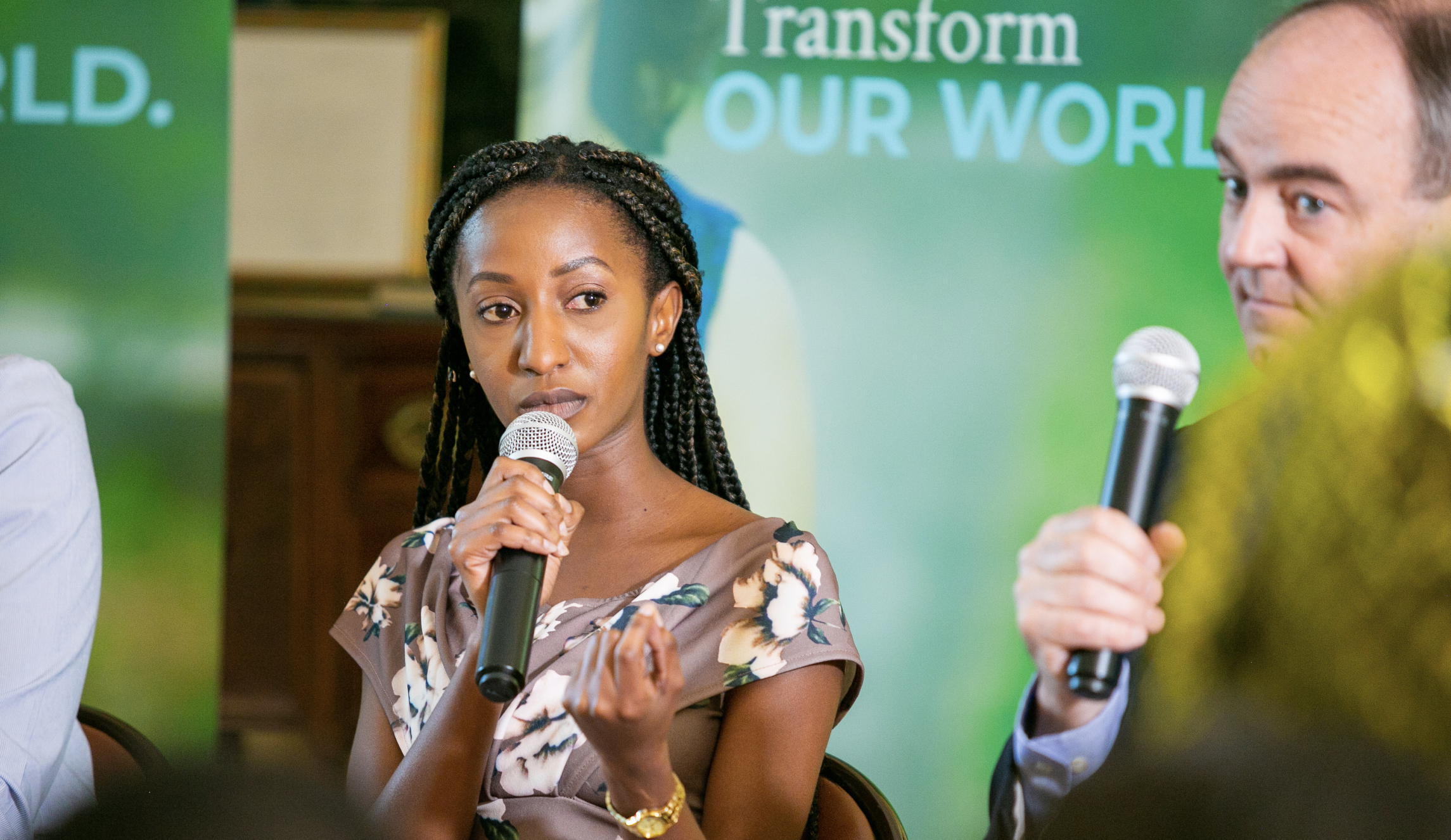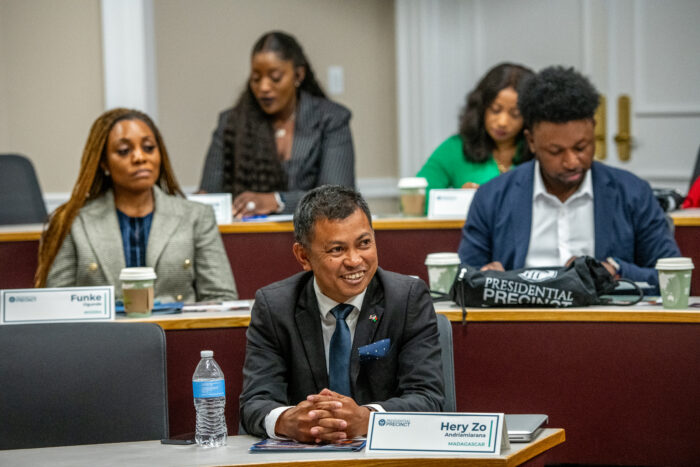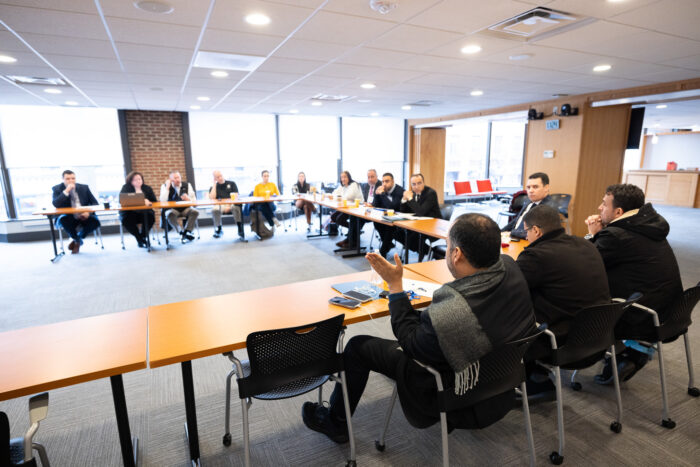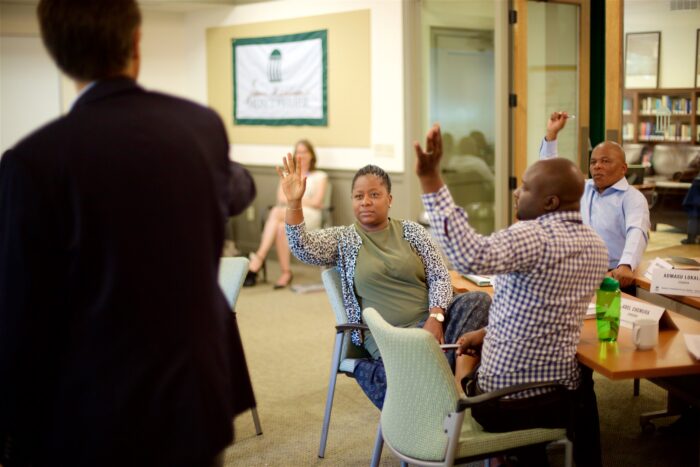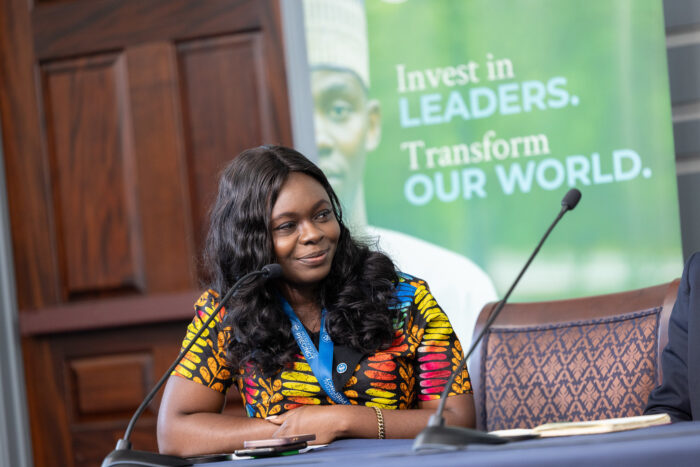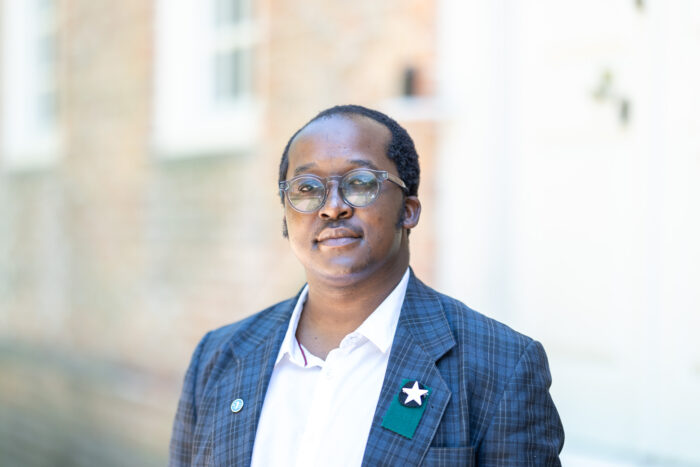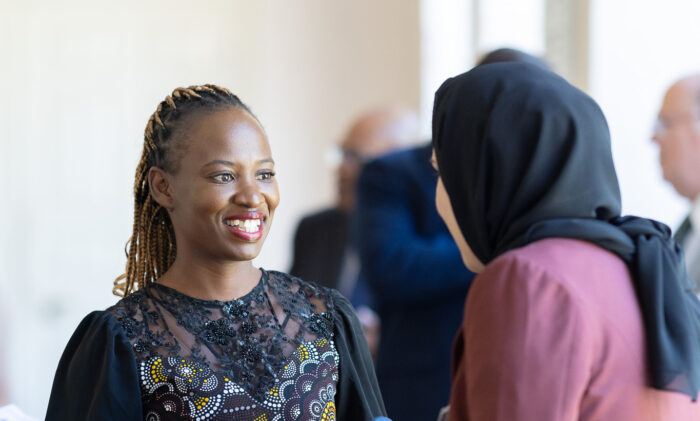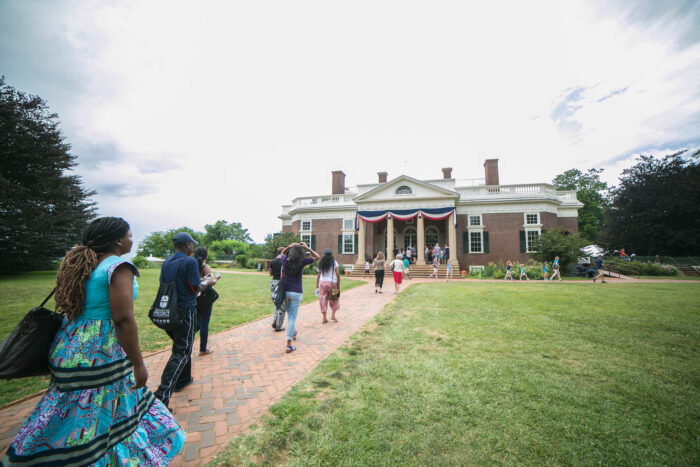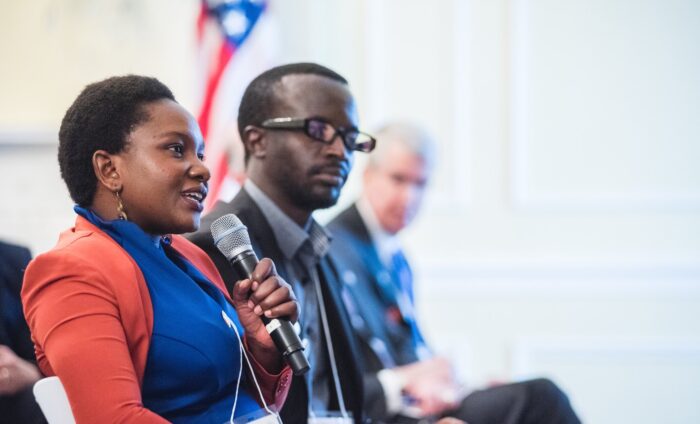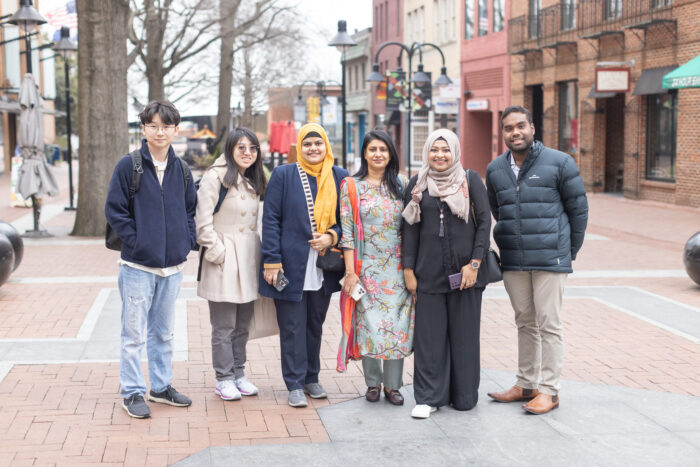World Refugee Day: COVID-19 and the Refugee Situation in Namibia
Lukeno Hangala is a 2019 Alumna of the Mandela Washington Fellowship Leadership in Civic Engagement Institute at the Presidential Precinct. She co-founded Southern Africa Refugee Protection (SARP), a Non-Governmental Organization responsible for social, legal and health protection for refugees/asylum seekers, returnees, Internal Displaced Persons (IDPs) and other People of Concerns (POCs) in Namibia and its neighboring countries.
—
As we all know, COVID-19 resulted in a global standstill; it came with major socio-economic crises, a higher unemployment rate, death and increased instability. It can also be referred to as the “Poverty Pandemic”, and has been a setback for all human-beings, refugees included.
In addition to having to re-start their lives from scratch, and experiencing post-traumatic stress disorder, the effects of the Pandemic adds a heavy burden to refugees’ situations; not to leave out the fact that they are susceptible to contracting COVID-19 due to the living conditions and hygiene standards at the refugee camps. A large number of refugees live in overcrowded places, with limited water supply and sanitation facilities to maintain cleanliness which could help keep the spread of Coronavirus at bay. Social distancing as a preventative measure is also a challenge under such circumstances.
Namibia has a good track record of accommodating refugees, and currently hosts around 6,500 refugees. During the State of Emergency, the Namibian government has practiced more flexibility, providing food rations to about 900 refugees based in the Windhoek capital, as opposed to them having to travel 200 km to receive their portions at Osire Refugee Camp as they always did.
Refugees have, however, been excluded in social relief schemes such as the N$750 economic stimulus packages which were allocated between April and June 2020 to those facing unemployment or lack of financial income as a result of the effects of the 21-Day Level 1 Lockdown. Refugees are also part of those affected, as most venture in informal businesses, such as street vendors. Since they are directly under the care of the Namibian government, aside from the UNHCR, they qualify to be protected financially.
Although testing and quarantine facilities are made available to everybody indiscriminately, they are far from the Osire Refugee Camp. Osire, however, has a clinic, where nurses are permanently stationed, and doctors make visitation rounds to from Otjiwarongo State Hospital any other day. It has been reported that there are no testing kits, thermo-guns nor adequate protective gear in preparation for the spread of Coronavirus in the event that it happens.
The latter situation is not due to the Namibian government’s negligence, but due to a lack of monetary funds, thanks to the COVID-19 pandemic and a shortage of doctors in the country. All-in-all, the Namibian government has been praised for successfully controlling the spread of Coronavirus and currently stands at only 45 recorded Coronavirus cases with 19 recoveries as of this writing.
The theme of World Refugee Day 2020 is: “Every Action Counts! Everyone can make a difference.” It is the responsibility of each one of us to make sure that no one is left behind in curbing the spread and effects of the COVID-19 pandemic and society welfare as well. Refugees are no exception to this and can contribute their skills and knowledge in order to create a just, inclusive, and equal world.
Southern Africa Refugees Protection will continue to advocate for refugees rights and create awareness on challenges they’re facing in plight to encourage and help promote and just and inclusive societies.
—
World Refugee Day is celebrated internationally on June 20. Learn more about UNCHR’s Every Action Counts campaign: https://www.unhcr.org/refugeeday/
The Mandela Washington Fellowship for Young African Leaders is a program of the U.S. Department of State with funding provided by the U.S. Government and administered by IREX. The Presidential Precinct is a sub-grantee of IREX and is implementing a U.S.-based Leadership Institute as a part of the Fellowship. For more information about the Mandela Washington Fellowship, please visit the Fellowship’s website at www.mandelawashingtonfellowship.org.

